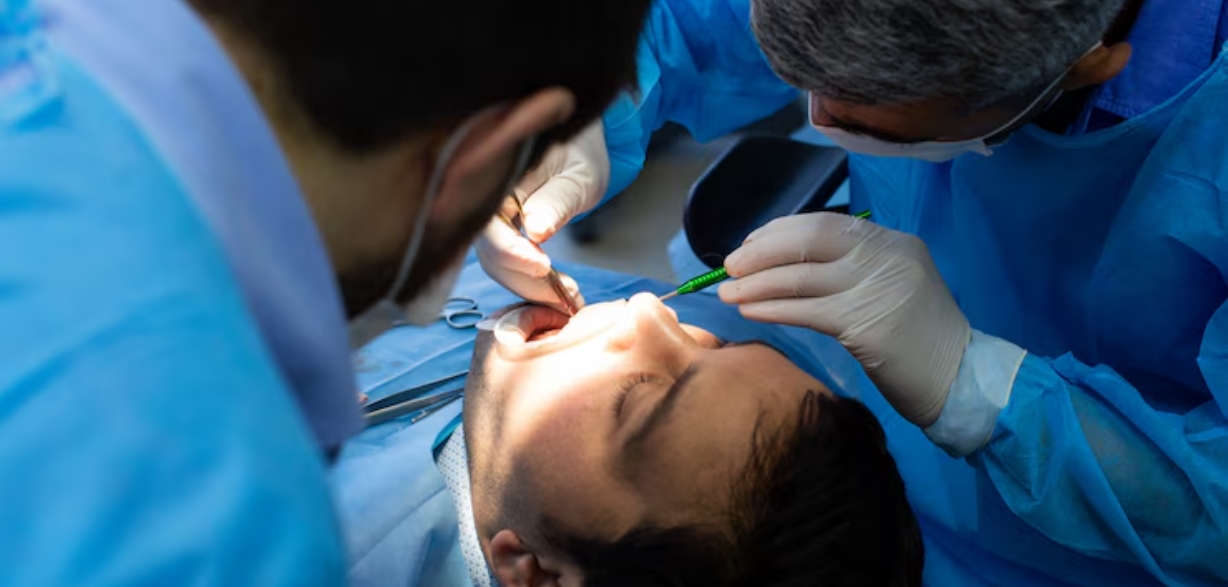
When Do You Need Oral Surgery? Signs and Symptoms to Watch For
A toothache isn’t always just a cavity. It may indicate oral surgery. Today’s tiny swelling can convert into tomorrow’s full-blown emergency for oral surgery. Mouth woes don’t necessarily heal themselves. You may need oral surgery when things happen in a hurry.
If you ignore the early warning signs, you may have to undergo complicated oral surgery. Oral surgery significantly prevents minor problems from becoming big dental catastrophes.
Common Signs and Symptoms Indicating Oral Surgery
A Recurring Tooth or Jaw Pain is a Vital Sign
You should not dismiss the persistent pain that doesn’t respond to simple dental care. It can be a sign of deep decay, an abscess, or nerve damage. Oral surgery is needed when root canals or fillings won’t correct the problem.
If jaw pain increases with chewing or speaking, it might be caused by the bone or joint. An oral surgeon can significantly determine if surgical treatment is needed.
You May Have Impacted Teeth
Impacted teeth, typically wisdom teeth, don’t come in all the way. They have the ability to rub against other teeth. As a result, it leads to pain, crowding, or infection. When there is ongoing discomfort or X-rays reveal poor eruption angles, oral surgery Buda is usually indicated. An oral surgeon effectively removes impacted teeth safely before complications set in.
Swelling or Infection Can Be a Culprit
Swelling, particularly with pain or pus, may indicate a severe dental infection. Cysts or abscesses are capable of developing in the gums, bone, or around teeth. If you ignore these symptoms, it can cause bone destruction or the spread of infection. Oral surgery can be required in this scenario to drain the abscess or remove infected tissue.
You May Face Trouble While Chewing or Opening Your Mouth
If normal activities such as chewing or talking become painful, you may have jaw disorders. Temporomandibular joint (TMJ) dysfunction can cause limited movement or lead to clicking. Oral surgery could effectively restore alignment or eliminate damaged tissue. An oral surgeon appropriately assesses movement and imaging before deciding.
Tooth Loss or Bone Loss is Another Sign
Missing teeth frequently lead to additional dental issues. Oral surgeons insert dental implants to significantly restore function and appearance. Bone density may be low, and grafting is required before implants. An oral surgeon remarkably assesses your bone structure and then prescribes a treatment plan.
You Can Get Facial Injuries or Trauma
Facial trauma from accidents or sports is capable of fracturing bones or loosening teeth. Oral surgery effectively restores appearance, repairs facial structure, and avoids long-term damage. Oral surgeons are educated to treat trauma cases. They also employ surgical techniques for recovery. Rapid treatment significantly minimizes complications and enhances outcomes.
When to Visit an Oral Surgeon?
Dentists provide routine care such as cleanings, fillings, and minor gum problems. Oral surgeons treat surgical procedures of teeth, bones, and facial structures. Therefore, you must find an oral surgeon if you have impacted wisdom teeth, jaw pain, cysts, or facial trauma.
Referral is the norm when your general dentist recognizes a case outside routine treatment. Surgical proficiency remarkably guarantees safe extractions, bone grafts, or corrective jaw surgery when called for.
You might also require an oral surgeon for dental implants, gum surgery, or severe infections. Early consultation can significantly make treatment easier and accelerate recovery.
Consider seeking our oral surgeons if symptoms continue or get worse. Oral surgery significantly restores function, avoids infection, and maintains overall health. You must catch signs early and save your smile before it’s too late.
